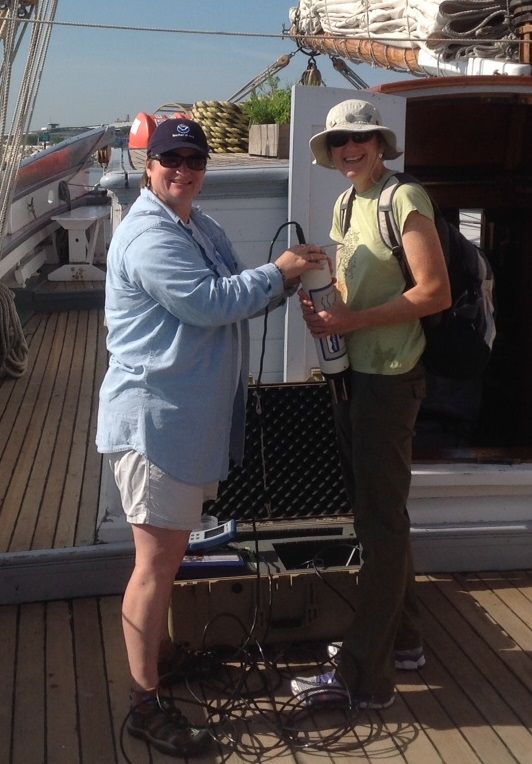Real-world, hands-on activities are bringing Great Lakes science alive for a group of Wisconsin middle school students. Our friends at Wisconsin Sea Grant have the story.
Two Wisconsin teachers have made exceptional use of the educational resources that Sea Grant has to offer. And not just resources from Wisconsin Sea Grant—the teachers have found valuable support from the Center for Great Lakes Literacy, a collaborative effort by educators in the Great Lakes Sea Grant Network funded through the Great Lakes Restoration Initiative.
The teachers are Lynn Kurth and Cindy Byers. Kurth works as a science teacher for Prairie River Middle School in Merrill, Wis. Just a 50-minute drive away, Byers works as a science and reading teacher for Rosholt Middle School in Rosholt, Wis.
They met in 2011 during a week-long voyage on the Lake Guardian, a research vessel owned by the U.S. Environmental Protection Agency (EPA). They were participating in a Shipboard and Shoreline Science Workshop, a program conducted by the Great Lakes Sea Grant programs through the former Centers for Ocean Sciences Education Excellence (which has become the Center for Great Lakes Literacy). They were part of a team of five colleagues who worked on a research project together. Kurth and Byers bonded over a Hydrolab—a large, tubular piece of water testing equipment—and it’s led to bigger and better things for both them, their students, and other teachers across the country.
The Hydrolab takes various water quality readings. Kurth and Byers were drawn to it because both of their schools are near rivers and the EPA was providing the device on loan for use with their classrooms after the cruise. They saw the opportunity to partner in the future.
It worked. “We supported each other’s teaching and enriched each other’s classrooms by having this collaboration,” Byers said. “We had the kids Skype with each other a couple of times and present the Hydrolab data they collected. Even though our schools are not that far apart, it seemed quite exotic to the kids and they were excited to use a piece of equipment that scientists use. A lot of the reasons we’ve been able to do so much with the program is that we’ve been supporting each other all along.”nce-in-a-lifetime learning experiences for students. In fact, 26 classes across the Great Lakes region took a break from their regular activities over the last year to video chat with the scientists behind the EPA Lake Guardian‘s annual monitoring cruises. Some students even took a guided virtual tour of the boat.
And now a new group of teachers and non-formal educators have an opportunity to work with Sea Grant specialists to introduce activities like these into their aquatic sciences sections during the 2015 Shipboard Science Workshop on Lake Michigan. Applications for the 15 available spaces are due February 10.

.jpg)
